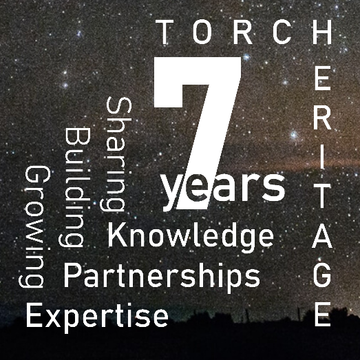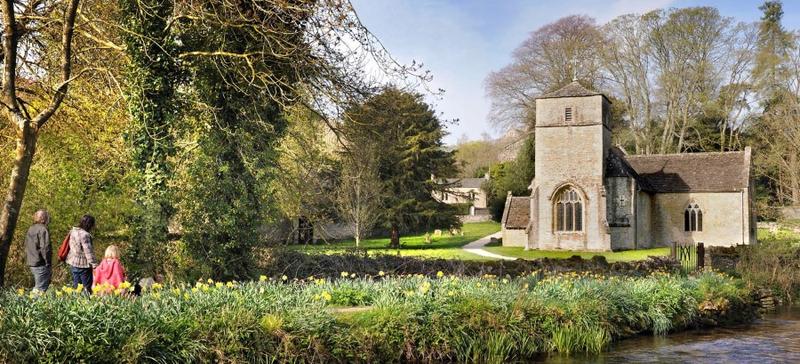Community Church Conservation
A Summer Internship with the Churches Conservation Trust
The Heritage Partnerships Team and the Oxford University Heritage Network (OUHN), working closely with the Oxford University Careers Service, set up and funded this four-week summer internship with the Churches Conservation Trust. This internship was funded through the Higher Education Innovation Fund (HEIF).This summer's internship is part of a series of collaborations with the CCT, including the development of future funding bids, and a project exploring changes in heritage skills supply chains in partnership with the Said Business School.
Churches have always been part of my normal life. Religious or not, most people live within a few miles of one, and they make up a distinct part of the geography of Britain. Since coming to university, I’ve developed a particular interest in the history of religion, and this has included how Britain came to be so dominated by churches. Yet with the decline of Christian practice in Britain, many of them are no longer used as places of worship. I always thought it interesting, and a little melancholic, and so when an internship with the Churches Conservation Trust (CCT) was advertised on the Oxford Careers Service website, I was eager to apply.
My internship project, which spanned four weeks, was to design a new application process for communities looking to undertake conservation projects in their local church. The CCT encourages these community-led projects as a way for people to continue to use and maintain their churches, which I think is a wonderful aim as it allows the churches to become social places and centres of the community again. I worked closely with my supervisor Gabriella Misuriello, the Head of Conservation at the CCT, to produce a new application process which would make it easier for these projects to go ahead. I was very excited to translate my historical knowledge and skills into a practical project, which would have a tangible benefit.
Due to the COVID-19 pandemic, I was working remotely, which made the whole experience rather different; my contact with the CCT and all consultations were held over Microsoft Teams calls, and this made for a rather interesting working environment. This internship was my first experience of being responsible for a project (that was not just academic work), and I was initially nervous about the level of independence I had! However, with the help of my supervisor, I quickly settled in and was able to adapt my working and communication methods to the new situation. I enjoyed the flexibility of working remotely, as it meant that I could work according to my own schedule.
Upon reviewing the initial documents that I was provided with which explained the old community project application process, I identified some gaps in the process that made it hard to follow. My approach to the new process stemmed from this, as I produced a flowchart aiming to fill the gaps which came to be my initial plan for the system. At this point, with positive feedback from my supervisor, my self-confidence improved as I had a clear direction which I worked towards. This included designing forms and documents to form the different parts of the process, then presenting my ideas to different groups in consultations. The whole project really improved my self-direction and decision-making skills as I had to translate my ideas into reality, and adapt to challenges and feedback.
The consultations were initially a bit daunting, as I was unsure of how easily I would be able to communicate my ideas for the new application process over a call, and whether people would react well to them. I had consultations with CCT staff and community volunteers, to gain insight into how the new process would work from both sides. Yet once these started, I quickly learnt how to approach them and received positive feedback and suggestions for the new process. It was evident to me that all the consultees cared deeply about the conservation of the churches and were eager to help. The consultations in particular were very useful for improving my communication skills, and I know that this will help me in my future career.
After the consultations, I adapted the application process on the basis of the feedback I’d received. I wanted to create a comprehensive process which could be ready for trialling by the time I had finished my internship, so I designed informational and guidance documents on how the process could work. In the final days of my internship, I presented my new process to a group of CCT staff, then added a few small tweaks based on feedback so that I could leave it in a finished state. I was very proud of the work I’d produced, and I hope that it is useful to the CCT in future.
Academically, the internship has taught me a lot about how history exists in the present world, and the challenges of conserving it. Designing a new community project application process was a much more practical application of my history and conservation knowledge than I’ve ever attempted before, and although I was initially scared of stepping outside of the academic bubble that I have so far lived in, I found it very fun and rewarding. I love the thought that I have contributed towards keeping the community spirit of churches alive, for many people to use and enjoy them in the future. The internship confirmed to me that I would enjoy the practicality and sociability of working in the conservation and heritage sector and has encouraged me to pursue a future career there.
Overall, the internship was an amazing experience for me, and I am so glad that I had the opportunity to do it. All the people who helped me, especially my supervisor, have contributed greatly to my personal and professional development, for which I am very grateful. I hope that the skills that I have learnt will soon be put to use in my future career!
Julia Duddy is in her third year reading history at the University of Oxford. She is particularly interested in the topics of religion, gender and Irish history. She has a keen interest in conservation and heritage work and would like to pursue this further after completing her degree.
TORCH Heritage Programme Homepage


Eastleach Church, one of the churches maintained by the Churches Conservation Trust. © CCT / Barry Cawston


